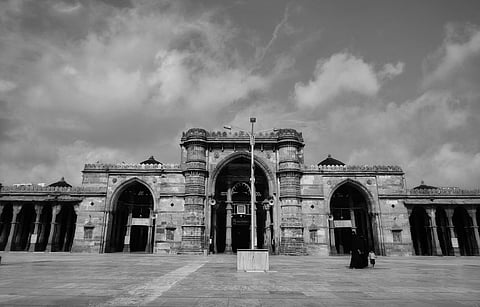Southasia Review of Books podcast #10: Zara Chowdhary on ‘The Lucky Ones’ and surviving the violence of the 2002 Gujarat pogrom
Welcome to the Southasia Review of Books Podcast from Himal Southasian, where we speak to celebrated authors and emerging literary voices from across Southasia. In this episode, Shwetha Srikanthan, associate editor at Himal Southasian, speaks to the writer, producer, and educator Zara Chowdhary, joining us from Madison, to talk about her memoir, The Lucky Ones (Context, September 2024)
On the 27th February 2002, two train carriages were lit on fire in Gujarat, claiming the lives of sixty Hindu right-wing volunteers. The chief minister of the state at the time, Narendra Modi, called the burning an “act of terror”. The next day, raging Hindu mobs, poured into Gujarat’s streets looting, raping and burning alive the state’s Muslims. The massacre continued for three months. Within three weeks, more than 2000 Muslims were killed and by the end of 2002, more than 50,000 Muslims became refugees and survivors in their own country.
In 2002, Zara Chowdhary is sixteen years old and living with her family in the city of Ahmedabad. Instead of taking her board exams that week, Zara is put under a three-month lockdown, with her family and thousands of others fearing for their lives as Hindu neighbours and members of civil society transform overnight into mobs, hunting and massacring their fellow citizens. Modi, will later be accused of fomenting the massacre, and yet a decade later, will rise to become the prime minister of the “world’s largest democracy”, fuelling the rise of Hindu nationalism across India.
Zara’s memoir The Lucky Ones is a reckoning with this past that feels all too present today. It is about the refusal to allow the violence that tore Gujarat apart in 2002, to be forgotten or repeated. It is the rebellion of a young Muslim woman who insists she will belong to her country, family, and faith on her own terms.
This episode is now available on Spotify, Soundcloud, Apple Podcasts and Youtube.
Episode notes:
The Lucky Ones by Zara Chowdhary (Context, September 2024)
Cover design by Arsh Raziuddin
New Moons: Contemporary Writing by North American Muslims edited by Kazim Ali (Red Hen Press, November 2021)
From Dream to Nightmare: On the Deadly Manifestations of Religious Hatred in India by Zara Chowdhary (Lithub, July 2024)
How to Grow Flowers in a Bedroom by Zara Chowdhary (SAAG Anthology, October 2024)
Resources about the 2002 Gujarat Pogrom compiled by Zara Chowdhary
Gujarat Files: Anatomy of a Cover Up by Rana Ayyub (March 2016)
Burying the Massacred: In the Shade of Kalandari by Heba Ahmed (First Post, 2019)
Scarred: Experiments with Violence in Gujarat by Dionne Bunsha (Penguin, April 2007)
Latitudes of Longing by Shubhangi Swarup (HarperCollins India, July 2018)
Shadow City: A Woman Walks Kabul by Taran Khan (Vintage, December 2019)
Killing for the state - Adil Bhat reviews Rana Ayyub’s Gujarat Files (Himal Southasian, July 2016)
How hate works - Rakesh Shukla reviews Revati Laul’s The Anatomy of Hate (Himal Southasian, July 2019)
Gujarat after two years of ‘normalcy’ - Satish Deshpande (Himal Southasian, March-April 2004)
Gujarat as another country - Prashant Jha ((Himal Southasian, October 2006)
The judge, the prosecutor and Best Bakery - Biraj Swain and Somnath Vatsa (Himal Southasian, September 2003)
Waiting for justice - Subhash Gatade (Himal Southasian, November 2006)
In a small, dark corner of Gujarat - Deepa A (Himal Southasian, October 2007)
Southasia Review of Books is a podcast and a monthly newsletter that threads together our latest reviews and literary essays, with curated reading lists and publishing news from around the region.
A new episode of the SaRB Podcast will be available once every two weeks. A special reading list curated by Zara Chowdhary will be featured in this month’s SaRB newsletter. You can subscribe to the newsletter here.
If you like this episode, please share widely, rate, review, subscribe and download the show on your favourite podcast apps.
What we do and what we love doing at Himal is really looking at Southasian literature like no other. And that gives us a very unique community, viewpoint and the privilege of making conversations like this possible. Please consider becoming a paying Himal Patron today to show your support for the Southasia Review of Books!

